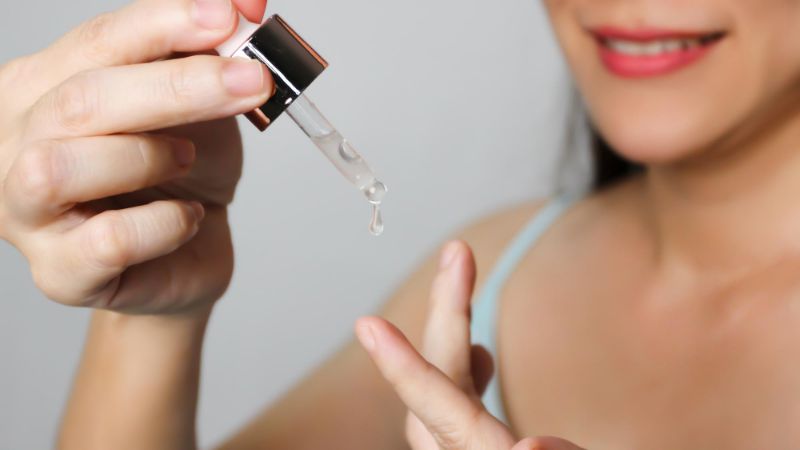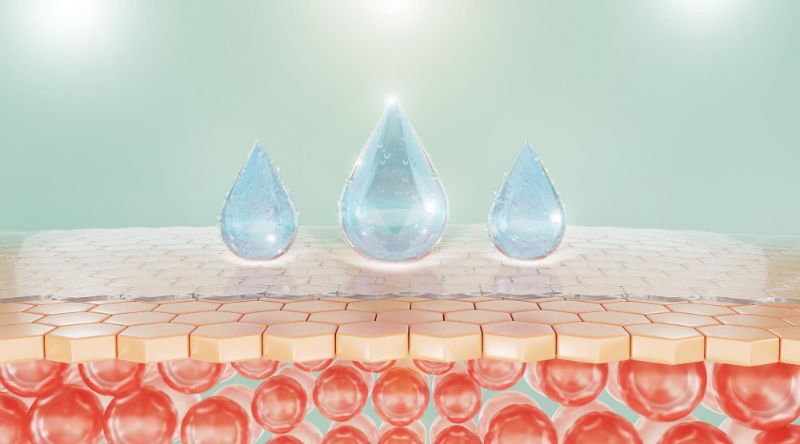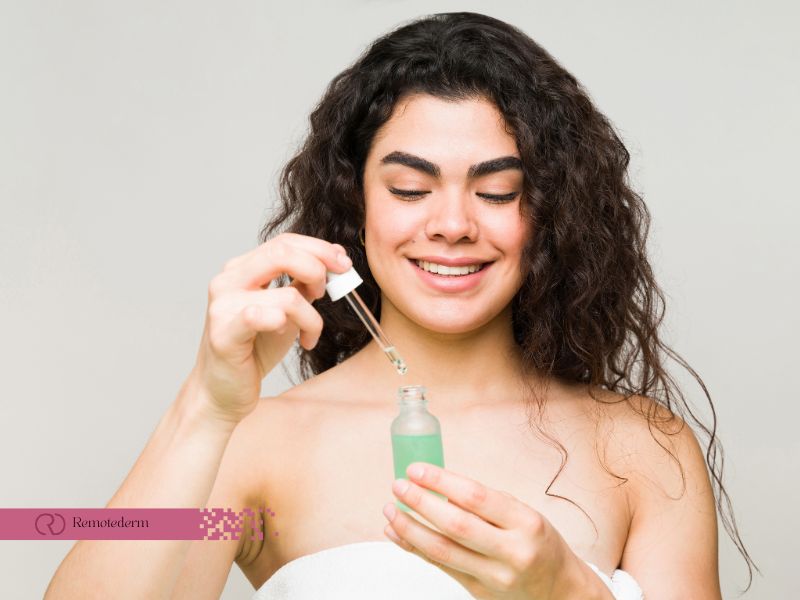In the quest for flawless and radiant skin, one ingredient has emerged as a true game-changer: hyaluronic acid for acne. In this article, we’ll unravel the surprising and transformative power of hyaluronic acid, shedding light on why hyaluronic acid is good for acne. Prepare to be amazed as we delve into the science, benefits, and undeniable efficacy of this skincare superhero.
The Marvel of Hyaluronic Acid
Hyaluronic acid, often hailed as the fountain of youth in skin care, is a naturally occurring compound found in our bodies. It’s renowned for its exceptional ability to retain moisture, holding up to 1000 times its weight in water. In the context of acne, this remarkable molecule plays a pivotal role in maintaining skin hydration and health, even for those with oily and acne-prone skin. Moreover, its versatility extends beyond hydration, as hyaluronic acid also contributes to promoting plumper, more youthful appearance by helping to diminish the visibility of fine lines and wrinkles.
The Science Behind Hyaluronic Acid for Acne
Hyaluronic acid (HA) has gained significant attention in skincare for its potential benefits in managing acne-prone skin. While traditionally known for its role in maintaining skin hydration and elasticity, recent research has illuminated its multifaceted role in addressing acne-related concerns.
Acne is often associated with excess oil production and inflammation. HA’s unique ability to retain water molecules aids in maintaining optimal skin moisture, preventing excessive oil production that can contribute to acne development. Furthermore, its moisturizing properties help create a barrier that shields the skin from external irritants.

Scientific studies suggest that HA may regulate sebum production, thereby reducing the risk of clogged pores and breakouts. Additionally, its anti-inflammatory characteristics can help mitigate redness and swelling associated with acne lesions. By promoting the skin’s natural healing processes, HA potentially aids in faster recovery from acne-related damage.
Incorporating hyaluronic acid into acne-fighting skincare routines may offer a well-rounded approach to managing acne. However, individual responses may vary, and consulting a dermatologist is crucial for personalized advice and treatment plans.
For individuals seeking expert guidance, RemoteDerm, an innovative online dermatology consultation service accessible anywhere in Canada, provides a convenient solution. Within just 12 hours, individuals can receive professional insights and tailored recommendations from qualified dermatologists. Book your online acne dermatology session today!
Benefits of Hyaluronic Acid for Acne-Prone Skin
Hyaluronic acid transforms acne-prone skincare with its non-comedogenic hydration, restoring skin balance, curbing oil production, and preventing breakouts. Its cell-regenerating power aids healing and reduces acne scars, while its gentle soothing quality complements a harmonious approach to acne management. Hyaluronic acid’s versatile benefits nourish, repair, and soothe, instilling renewed confidence in the pursuit of clear skin. Read on to discover the advantages of Hyaluronic acid for acne-prone skin:
Non-Comedogenic Hydration
Hyaluronic acid emerges as a lightweight, non-comedogenic moisturizing powerhouse that stands in stark contrast to conventional moisturizers, which have the potential to exacerbate pore-clogging issues. This remarkable acid not only quenches the skin’s thirst but does so without imposing any burden, rendering it a supremely fitting choice for individuals grappling with acne-prone skin concerns.
Balancing Act
Maintaining the delicate balance of moisture in the complicated environment of acne becomes a difficult chore. In this situation, hyaluronic acid plays a prominent role, using its abilities to reestablish a healthy balance by deeply hydrating skin cells, directing a precisely timed regulation of oil production, and simultaneously reducing the chance of potential breakouts.

Enhanced Healing
The aftermath of acne often manifests as stubborn scars and unsightly marks. Yet, hyaluronic acid’s intrinsic properties as a skin-restorative agent come to the fore, serving as a catalyst in the intricate process of healing. Through the promotion of skin cell regeneration, it plays a pivotal role in attenuating the visibility of acne scars, thereby aiding the skin’s journey towards renewal.
Gentle and Soothing
The pursuit of clearer skin occasionally propels the deployment of aggressive treatments, an approach that may unwittingly provoke irritation and induce unwelcome redness. However, hyaluronic acid’s inherently soothing demeanour steps in as a dependable ally, extending a nurturing touch to inflamed skin. This dynamic interplay ensures a tactful and efficacious strategy in the realm of acne management, epitomizing the synergy between gentleness and efficacy.
Incorporating Hyaluronic Acid into Your Skincare Routine
Integrating hyaluronic acid into your daily regimen is simpler than you might think. Whether you’re a skincare aficionado or just beginning your journey, our experts recommend these steps:
1. Cleansing
Initiate your skincare routine by delicately cleansing your skin, effectively eliminating impurities and environmental pollutants. This initial step sets the stage for hyaluronic acid to perform its transformative actions unimpeded, unlocking its full potential.
2. Application
Delicately apply a hyaluronic acid serum onto your slightly dampened skin, ensuring thorough absorption and maximizing its benefits. Employ gentle, upward massaging motions to evenly distribute the serum across your face and neck, allowing it to deeply penetrate and nourish.
3. Locking in Moisture
Seal in the abundant benefits by employing a lightweight moisturizer infused with hyaluronic acid. This crucial phase not only enhances the effects of hyaluronic acid but also establishes a resilient shield that traps moisture, granting your skin sustained hydration throughout the day.
4. Sun Protection
Conclude your regimen by layering on a sunscreen offering a minimum of SPF 30, effectively safeguarding the renewed vitality of your skin against the detrimental impact of UV rays. This vital measure ensures that your revitalized complexion remains shielded and continues to thrive.
The Verdict: Hyaluronic Acid, Your Acne Ally
Hyaluronic acid emerges as a powerful ally in the skincare realm, particularly for combating acne. This article highlights its transformative qualities, emphasizing its manifold benefits for acne-prone skin. From its prowess in retaining moisture to its role in fostering a youthful appearance, hyaluronic acid’s acclaim in skincare is evident.
Exploring the Science Behind Hyaluronic Acid for Acne, its capacity to regulate moisture, counteract excess oil, and aid in skin healing is examined. With its hydrating and anti-inflammatory attributes, hyaluronic acid becomes a comprehensive solution for acne management.
The section on the Benefits of Hyaluronic Acid for Acne-Prone Skin showcases its versatility in transforming skincare routines. It offers non-comedogenic hydration, balances the skin, enhances healing, and soothes irritation, making it a multifunctional asset.
To seamlessly incorporate hyaluronic acid, follow expert-recommended steps: cleanse gently, apply the serum for absorption, seal with a hydrating moisturizer, and safeguard with sun protection.
Ultimately, hyaluronic acid bridges science and skincare, empowering against acne. Its nourishing, healing, and soothing capabilities inspire confidence in the pursuit of clear, radiant skin. Embrace its transformative potential for a brighter complexion.
FAQs
- How does hyaluronic acid balance moisture in the skin?
Hyaluronic acid plays a pivotal role in moisture balance by holding up to 1000 times its weight in water, ensuring optimal hydration levels for a healthier skin barrier.
- Does hyaluronic acid have anti-inflammatory properties?
Absolutely, hyaluronic acid’s inherent anti-inflammatory characteristics contribute to the reduction of redness and swelling often linked to acne breakouts, promoting a calmer complexion.
- Can hyaluronic acid prevent excessive oil production?
Emerging from scientific studies, hyaluronic acid is increasingly recognized for its potential to regulate sebum production, effectively reducing the risk of clogged pores and subsequent breakouts.
- Is hyaluronic acid suitable for sensitive skin?
Given its gentle and soothing properties, hyaluronic acid is generally well-tolerated by sensitive skin types, offering a comforting solution for acne-prone individuals.
- How does hyaluronic acid aid in skin healing?
Hyaluronic acid’s multi-faceted role extends to facilitating the process of skin cell regeneration, a pivotal factor in promoting faster recovery from damage associated with acne-related issues.
